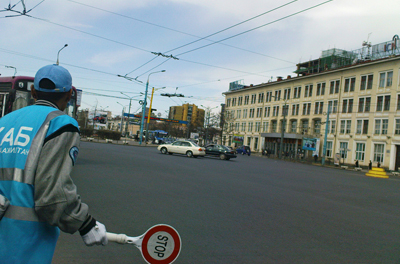Improving Public Expenditure Management in Mongolia and Lao PDR

Summary
With the continued economic growth of East Asian and Pacific (EAP) developing countries, public concern has increased about the appropriateness of and transparency around public expenditures. Recent corporate collapses and increased corruption cases focused attention once again on auditors’ roles and performance, since government auditing plays a vital part in safeguarding public assets. Compared with others in EAP, Mongolia’s and the Lao People’s Democratic Republic’s (Lao PDR) government auditors or Supreme Audit Institutions (SAIs) are weak. Therefore, the governments of Mongolia and Lao PDR wanted to strengthen their SAIs to enhance transparency and accountability over public resources. Meanwhile, China’s National Audit Office (CNAO) had made significant progress in improving its audit methodology, practices, and organization, and it had become a model of good practice in EAP. Using funding provided by the South-South Experience Exchange Facility, CNAO experts traveled to Mongolia and Lao PDR to teach their SAI counterparts how to improve budget expenditure audits, quality assurance, and banking sector evaluations.
The training allowed Mongolian and Lao auditors to actively discuss, compare, and contrast their experiences and challenges with those of CNAO. The participants learned about CNAO’s approaches to auditing budget expenditure, internationally financed projects, the banking sector, and its approach to quality assurance. The exchange raised their awareness and improved their knowledge and skills about audit tools and techniques for designing and implementing more effective financial audits. In a survey following the workshops, the participants indicated that the training objectives were met and that the exchange had equipped them with information and knowledge to conduct better audits. The training participants particularly appreciated the detailed examples and case studies discussed during the training and expressed interest in continuing to learn about conducting quality audits. Based on the workshops and interactions with their CNAO peers, the SAIs of Mongolia and Lao PDR planned to modify and tailor their audit approaches and methodology to their local situations.
Beneficiaries / Participants
Mongolia has successfully implemented first-generation Public Financial Management (PFM) reforms, including establishment of a consistent legal framework and effective systems for budget execution, monitoring, and reporting. In an environment in which public revenues from mining will increase exponentially over the next few years, a stronger sense of transparency and accountability at the national, local, and corporate levels will be required for transforming nonrenewable mineral resources into renewable assets. These reforms will become all the more important as the volume of mining revenue increases. The World Bank supports efforts to enhance capacity in key government agencies—at both the central and local levels—to manage mining revenues, more fully integrate budget management, and improve expenditure management and efficiency. The Bank and the Mongolian government are also working together to make government financial information publicly available to enable citizens to track the effectiveness of public institutions. Meanwhile, the State Audit Organization (SAO) of Lao People’s Democratic Republic (Lao PDR) prepared a 10-year Capacity Development Action Plan. The SAO specifically requested that the World Bank investigate whether any other Supreme Audit Institutions (SAIs) would be able to provide assistance in improving their financial auditing.
China’s National Audit Office (CNAO) is a model of good practice in ensuring the safeguarding of public assets in the East Asia and Pacific region. To improve the capacity of their government auditors, Mongolia and Lao PDR expressed interest in learning from CNAO’s audit methodology, practices, organization, and the challenges it had faced and overcome. According to the latest development strategy of the SAIs in the two countries, improving the audit quality on budget execution was their first priority. Strengthening the capacity of SAIs leads to improvements in the transparency and accountability of public expenditures. Using funding from the South-South Experience Exchange Facility, CNAO trainers traveled to Mongolia and Lao PDR and conducted training workshops on auditing budget expenditure, performance, the banking sector, quality assurance, and evaluation of projects financed by International Financing Institutions such as the World Bank.
Moving forward
- When organizing exchanges in SAIs, expert visits work best because the knowledge providing professionals can observe the situation on the ground and tailor their workshops for specific cases.
- Providing further funding to continue knowledge exchanges is good practice, as longer engagements work better than one-off events.
- To expand coverage, knowledge exchanges should take the form of train-the-trainer sessions so the recipients can provide further training to their national or local colleagues.

 China
China Colombia
Colombia Denmark
Denmark India
India Indonesia
Indonesia Mexico
Mexico Russian Federation
Russian Federation Spain
Spain United Kingdom
United Kingdom